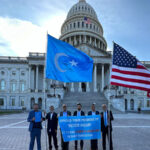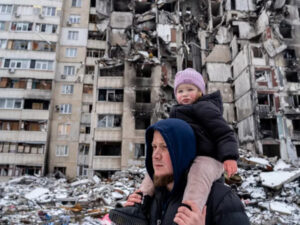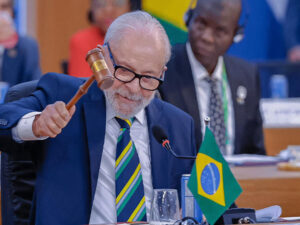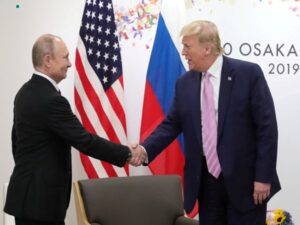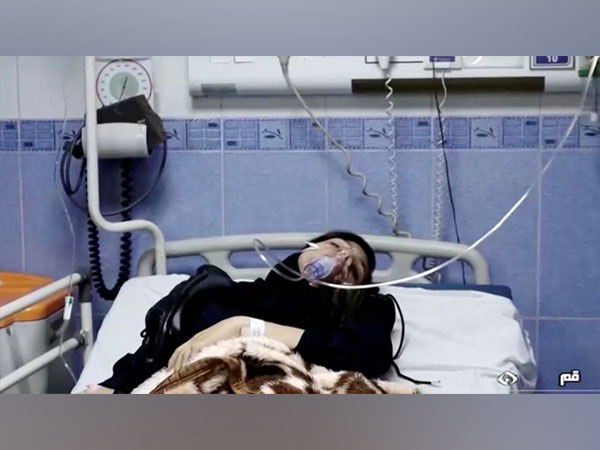
Tehran [Iran], March 13 (ANI): The Iranian authorities have arrested more than 100 people in connection to the suspected poisoning of Iranian schoolgirls, reported CNN. Citing a statement from Iran’s Interior Ministry, the state-run IRNA news agency said the people had been “identified, arrested and investigated” in several cities, including the capital Tehran.
“Initial inquiries show that a number of these people, out of mischief or adventurism and with the aim of shutting down classrooms and influenced by the created psychological atmosphere, have taken measures such as using harmless and smelly substances,” the statement read.
Iran has seen a wave of suspected poisonings, carried out almost entirely at girls’ schools, in recent months. The first known incident of schoolgirl poisoning occurred on November 30 in the city of Qom, when about 50 students fell ill and were taken to the hospital. Another incident in the city took place in February when more than 100 students from 13 schools were hospitalized after what Iranian state news agencies described as “serial poisonings,” reported CNN.
Both the United States and United Nations had called on Iranian authorities to fully investigate the suspected poisonings and hold those responsible to account.
While Iranian politicians have suggested the girls could have been targeted by hardline Islamist groups, activists believe that the poisonings may be linked to the nationwide protests that erupted last September over the death of Mahsa Amini.
Many schoolgirls have been active in the protests, removing their mandatory headscarves in classrooms, tearing up pictures of Supreme Leader Ayatollah Ali Khamenei and calling for his death, reported CNN.
Medics, parents and teachers have accused the Iranian government of attempting to silence the victims. Many Iranians fear that Islamist hardliners are behind the attacks as their aim is to terrorize the girls and make their families stop sending them to school. Such methods were used by the Taliban in Afghanistan in 2010 and more recently by the Islamic terrorist group Boko Haram in Nigeria, which in 2014 kidnapped 276 schoolgirls.
Iran’s Supreme Leader Ali Khamenei previously called the suspected poisonings an “unforgivable crime” and called for “severe punishment” for anyone found responsible. Among those arrested, the ministry said, were “individuals who have had hostile motives, tried to create fear and horror among people and students, shut down schools, and created pessimism toward” the Iranian government, reported CNN.
They would remain “under investigation until required assurances are achieved,” the statement said, adding that the number of poisoning cases at girls’ schools across the country had been decreasing “over the past several days.” Earlier, President Ebrahim Raisi claimed that the poisoning was the work of Iran’s enemies, who seek to cause chaos in the country and try to instil fear, despair and insecurity among parents and students. (ANI)
Iran’s growing influence in Venezuela challenges West
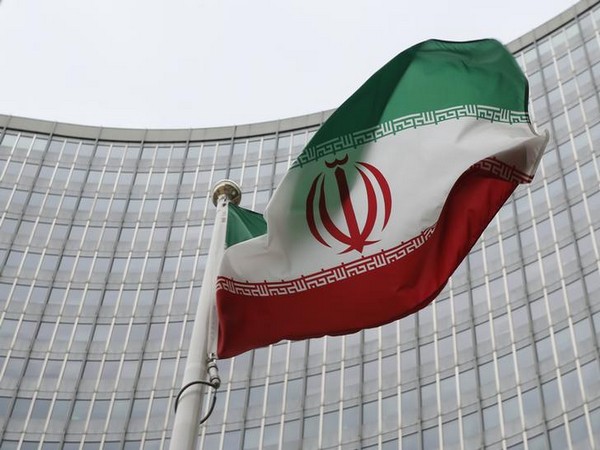
Washington (US), March 12 (ANI): Iran is striving to expand its influence in fellow US adversaries Venezuela, which is hosting an Iranian cultural fair this week and seeking Iranian assistance to revive the ailing Venezuelan energy industry, Voice of America (VOA) reported.
The International Fair of Venezuelan-Iranian Culture and Friendship opened on March 4 in the Venezuelan capital, Caracas, and ran through Sunday. It is organized by a Caracas-based group called the Center for Intercultural Exchange in Latin America, or CICL.
The US research group Foundation for Defense of Democracies said in a report last December that CICL is a Latin American branch of Iran‘s al-Mustafa International University, which the report describes as Tehran’s principal institution for recruiting, indoctrinating and training foreign converts to Shi’ite Islam, VOA reported.
Venezuela hosted another senior Iranian official on February 3, when Oil Minister Tareck el-Aissami met with Iran‘s top diplomat, Hossein Amir-Abdollahian, in Caracas. Iranian state media said el-Aissami urged the Iranian government to share its expertise on energy and related technologies with his nation, which sits on the world’s biggest crude oil reserves but has a decaying infrastructure beset by domestic fuel shortages in recent years.
The VOA reported that three days later, state oil firm Petroleos de Venezuela planned to award a $490 million contract to the state-owned National Iranian Oil Refining and Distribution Company in the coming weeks to revamp the Paraguana Refining Center, Venezuela‘s largest refining complex. The Reuters report cited “four sources close to the plan.”
Venezuelan Foreign Minister Yvan Gil Pinto described Iran as a very close friend at a more recent meeting with Amir-Abdollahian in Geneva on February 28, according to the Iranian foreign ministry. It cited Pinto as saying Venezuelan President Nicolas Maduro’s government is “determined to strengthen relations with Iran in all fields, including oil, energy, economy and trade.”
Both nations are heavily sanctioned by the US which sees them as human rights violators and sponsors of terrorism and accuses them of other malign behaviours.
The growing Iranian-Venezuelan alliance was the focus of a VOA interview with exiled Venezuelan opposition politician Julio Borges in this week’s edition of the Flashpoint Iran podcast. Borges is a senior member of the Justice First party and a one-time foreign minister of the former US-backed interim Venezuelan government that comprised several opposition parties and dissolved itself in January after four years. (ANI)




